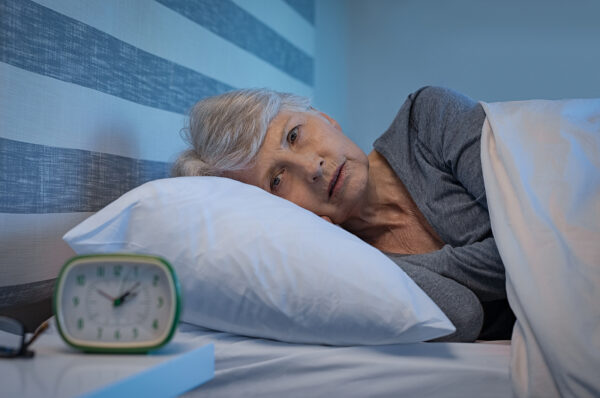September 4, 2024

Sundowning is a common issue for seniors who have Alzheimer’s disease. Sundowning causes an increase in symptoms like confusion and agitation, which can already be a problem for some Alzheimer’s patients at other times of day. It occurs in the late afternoon and evening hours of the day, which is how it earns its name. What families need are strategies that work to help seniors experience less distress and greater comfort when sundowning normally occurs. Alzheimer’s care providers can help families learn and implement these strategies.
Seniors with Alzheimer’s disease often find themselves confused and anxious. As daylight fades and shadows increase, they may start to feel even more confused and anxious. Fatigue plays into this as well, because seniors have already spent all day exerting energy dealing with various challenges. As they become even more restless and irritable, distress increases, making it all feel worse. So what can families do?
Having a predictable schedule does a lot for seniors with Alzheimer’s disease. It reduces a lot of decision fatigue and offers a sense of security. Seniors can arrange their routines to best suit their needs, including reducing overstimulation later in the day. Home care providers can help families to tweak routines to keep them effective.
Calm environments help a lot when it comes to reducing overstimulation for Alzheimer’s patients. Soft lighting that reduces shadows and darkness that often comes with the late afternoon changes eases the transition from day to evening. Minimizing background noise helps to reduce distractions and reduce stimulation further. Comfortable, familiar surroundings also help, which is why many seniors with Alzheimer’s disease want to age in place for as long as they can.
Stimulants like caffeine and sugar later in the day can also contribute to overstimulation. Eating regular, balanced meals helps seniors to keep their energy levels stable.Staying hydrated throughout the day helps to keep blood pressure and body temperature regulated. The symptoms of dehydration can also make sundowning worse, making it even more urgent for seniors to drink plenty of fluids.
Regular physical activity is good for all sorts of reasons, but it’s also a great way for seniors with Alzheimer’s to burn off excess energy that can lead to agitation. Exercising outside helps with natural light exposure and may help rest the body’s internal clock. This can be especially helpful if seniors are having trouble sleeping well at night.
Gentle communication and comforting touch are always helpful for seniors with Alzheimer’s disease. When they’re battling sundowning, these techniques can be especially calming. Alzheimer’s care providers can help families understand how well reassurance and support work for seniors with Alzheimer’s disease.
Caring for seniors with Alzheimer’s disease means watching for all sorts of issues, including problems with sundowning. Alzheimer’s care providers help families understand what is happening and what they can do to make life easier and safer for aging adults with Alzheimer’s and other forms of dementia.